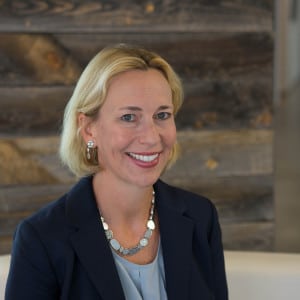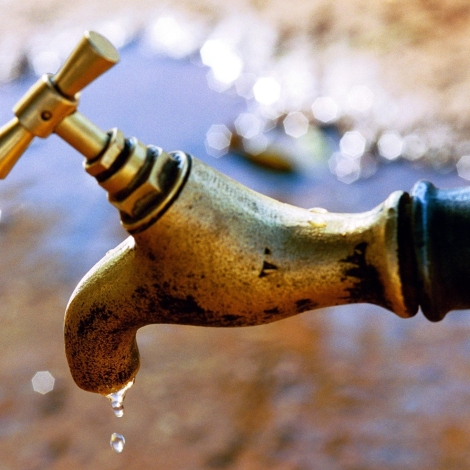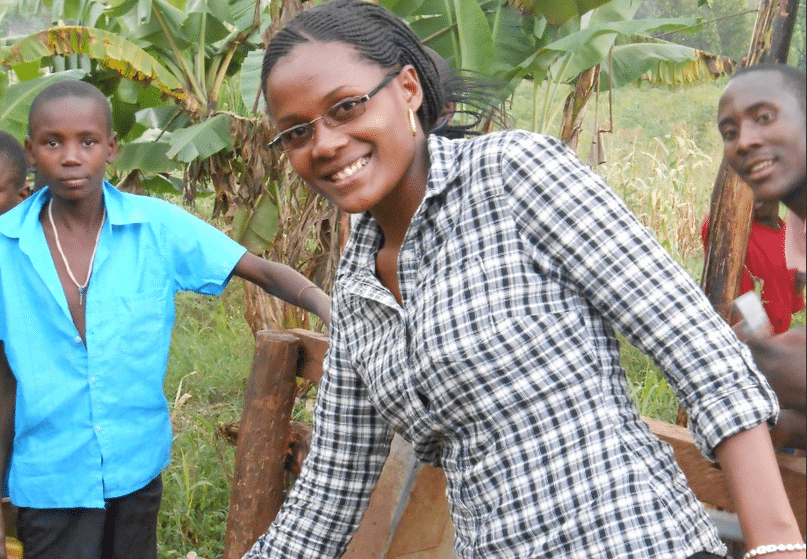 Eleanor Allen turned a background in civil engineering into a globe-spanning career improving water and sanitation services in developing countries. She first set out in the Peace Corps as a water and sanitation volunteer in the Dominican Republic and then worked her way up through the ranks at the international engineering firm CH2M to direct their Latin American water division. She was the Global Director of Water at ARCADIS, and now she is the new CEO at the non-profit Water for People. We welcomed the chance to ask her five questions.
Eleanor Allen turned a background in civil engineering into a globe-spanning career improving water and sanitation services in developing countries. She first set out in the Peace Corps as a water and sanitation volunteer in the Dominican Republic and then worked her way up through the ranks at the international engineering firm CH2M to direct their Latin American water division. She was the Global Director of Water at ARCADIS, and now she is the new CEO at the non-profit Water for People. We welcomed the chance to ask her five questions.
E4C: Story time… When did it became clear that this is the work that you want to do?
EA: I knew I wanted to be a Peace Corps volunteer in about the 7th grade when I secured the Peace Corps stamp for my stamp collection and learned what the Peace Corps was all about. From that moment on I was on a life quest to help make a positive impact in the world. To that end I realized during my junior year of civil engineering that I wanted to work with water. I was studying hydraulics at the Technical University at Delft (The Netherlands) during that year and fell in love with water. After I graduated with my civil engineering degree from Tufts University a year later, I got my first job in hydraulic engineering. I worked in consulting engineering doing physical hydraulic modeling for a few years and then finally realized my dream of becoming a Peace Corps volunteer. It was there that I became aware of the dire need in the world for universal access to water and sanitation. I made up my mind to be part of this solution. After Peace Corps I did my master’s degree in civil & environmental engineering at the University of California at Berkeley with a specialty in water/wastewater treatment. I have been working in that area ever since and hoping that someday I would get back to doing development work. And so I have! My career has come full circle since I came to Water For People!
E4C: What is one of the promising trends that you see in water and sanitation services in developing countries?
EA: Our delivery model at Water For People is called Everyone Forever – water and sanitation for everyone – every family, clinic and school (even the hardest to reach) – forever. We work on a system level to develop programs with local communities, governments, and entrepreneurs. Our goal is to develop capacity to not only build systems but have the community develop a water committee or utility that can operate and maintain the systems – forever. This is different – the communities have to change behavior to self-fund part of the capital costs, and pay rates to fund the operation and maintenance of the systems. This is the way that utilities were formed in the US and in Europe centuries ago. System thinking is now also occurring, at an ever increasing pace, in the developing world. In fact, Water For People was founded by professionals from the water utility sector in the US 25 years ago to achieve this vision. The most promising part of the trend toward sustainable operations is that some countries are understanding the model at a national level. The tangible benefits of improving the health, education and economic productivity of their countries through water and sanitation is evident. National leadership in water and sanitation through the adoption of the Everyone Forever (or equivalent) model at a country level is starting to occur (e.g., Bolivia, India, Rwanda, etc). When national governments lead is when we see real change in the world towards ending water poverty. And then countries can become aid-independent and organizations like Water For People are no longer needed – our ultimate destiny and desire!
E4C: What do you think is a dead end in your field that some people just won’t let die?
EA: Something that just won’t die is patriarchal development funding (aid) via non-governmental organizations (NGOs), or bilateral/multilateral funding, that only provides for the building of “projects” (not programs or systems). This is not a scalable solution to universal water and sanitation. Most of these projects were (and are) decided without consulting the local communities or governments, and they are not the right solutions for long-term water and sanitation. Oftentimes the funders leave the communities and what they build either never works correctly or it breaks. It is then rendered useless because the communities do not know how to operate and maintain the projects (nor do the have the external funds to do so or the know how to raise the money locally). We see graveyards of defunct development projects like these all over the world.
E4C: In your work, what has been one of the most instructive mistakes that you’ve made, and what did you learn from it?
EA: Working in too many countries on too many individual “projects”. We learned that we can have greater impact when we focus on programs in fewer countries. We went from 40 countries to 9 countries and we are seeing much faster progress towards Everyone Forever.
E4C: What can we do to accelerate the work to achieve Sustainable Development Goal 6, water and sanitation for everyone, by 2030?
EA: Imagine what greater influence we can have if NGOs in the water, sanitation and hygiene (WASH) sector collaborate together. We have started just this movement. Water For People has formed an Agenda for Change with WaterAid, IRC and Agua Consult to create even greater impact at the global level by working with national governments on sustainable system approaches to water and sanitation. Everyone Forever on steroids! You can read more here: Joint WASH Principles.


Excellent qA. Really liked the collaboration